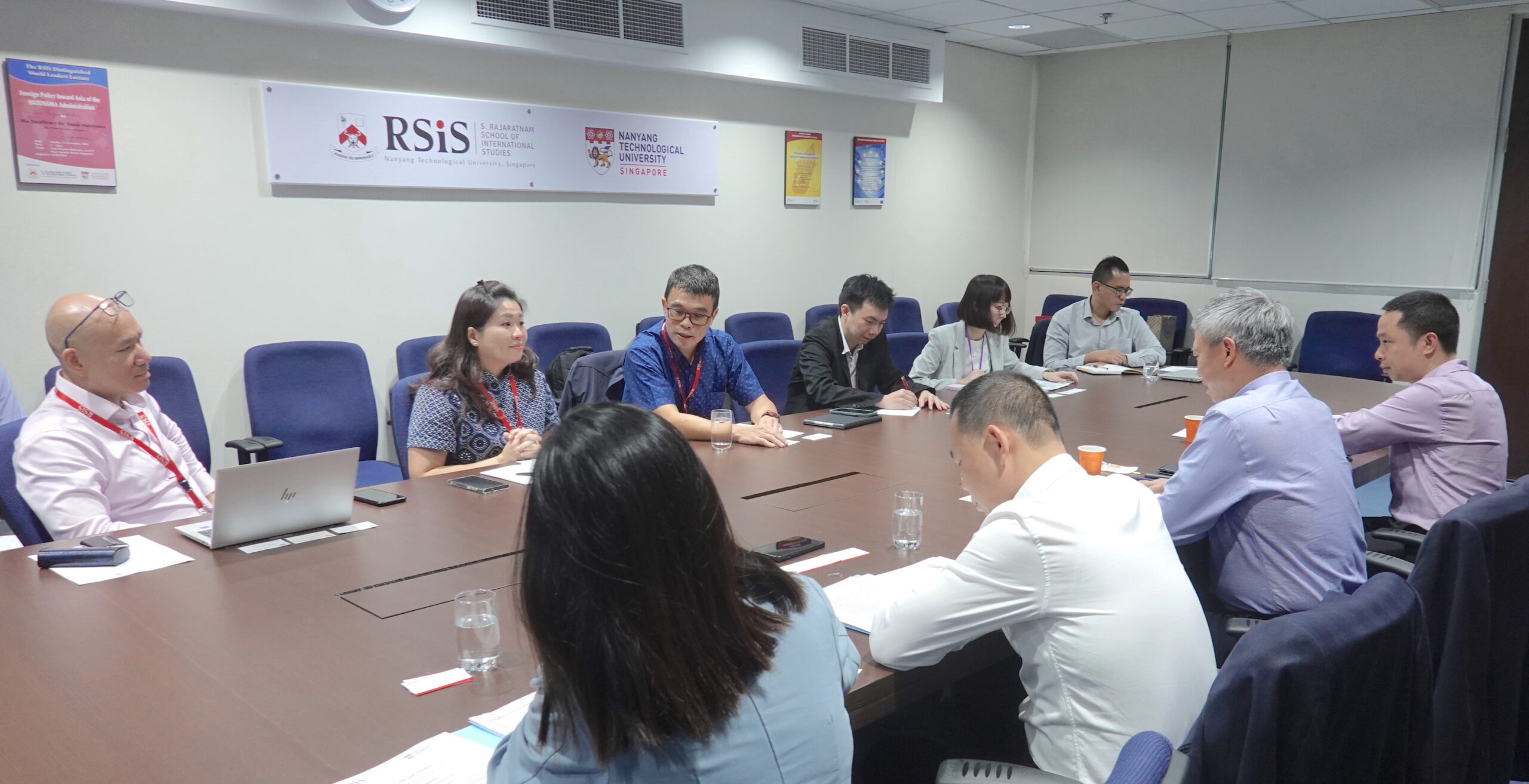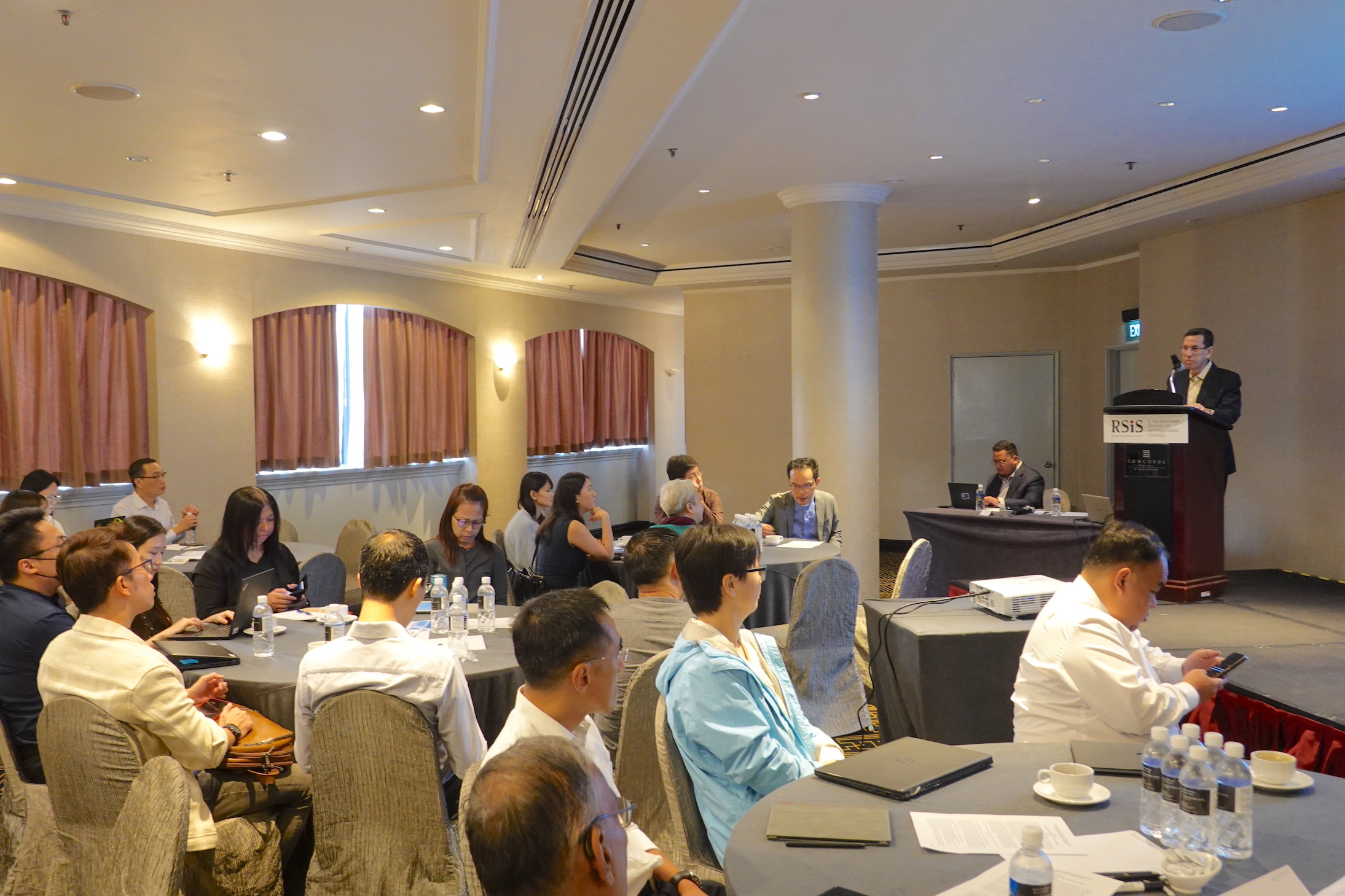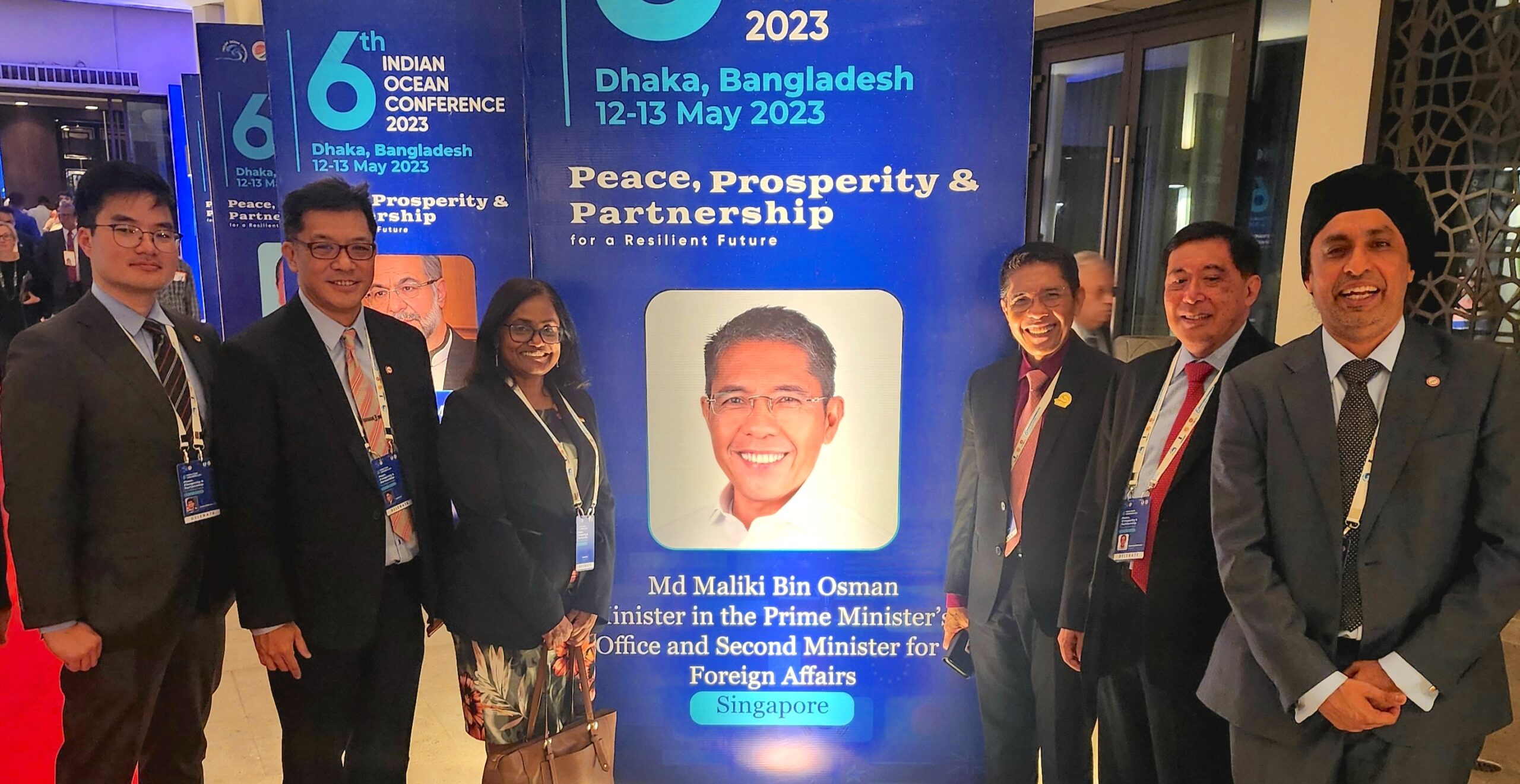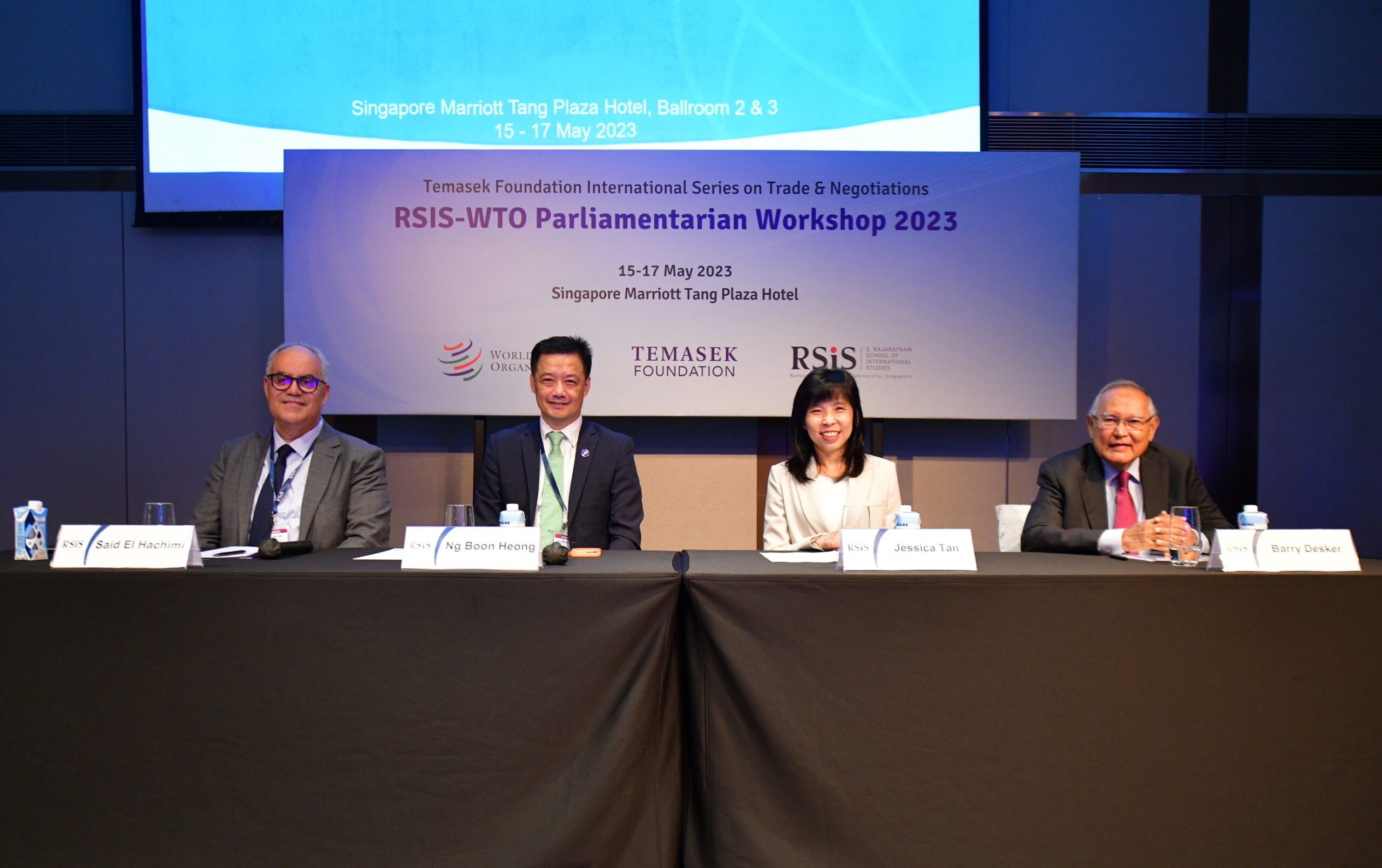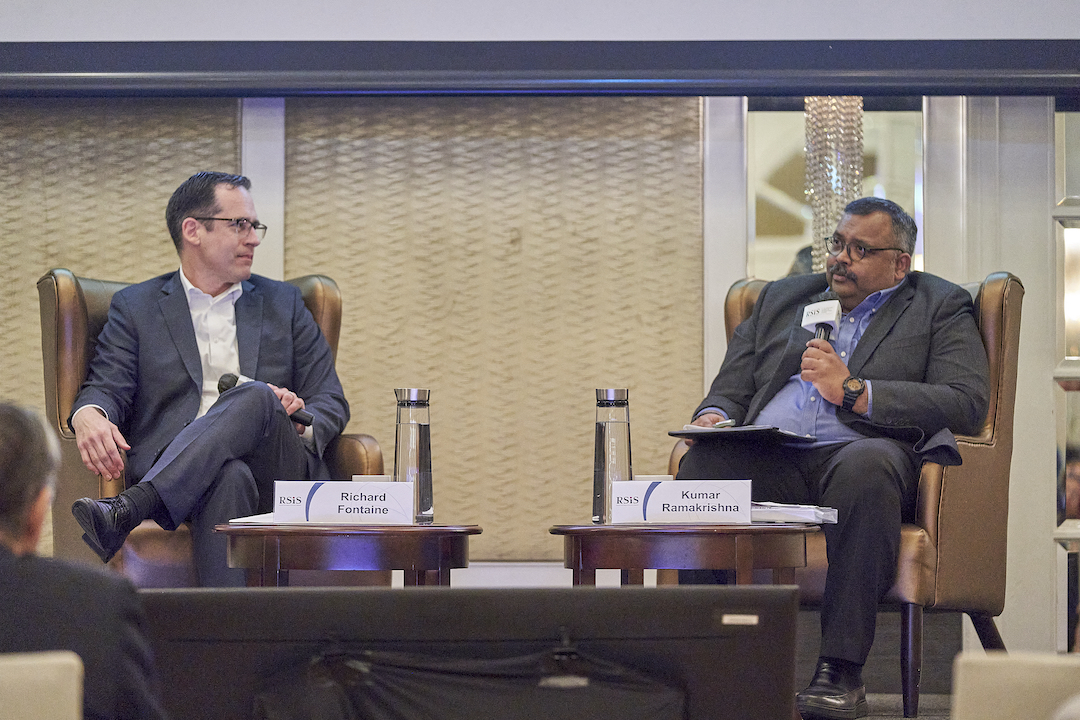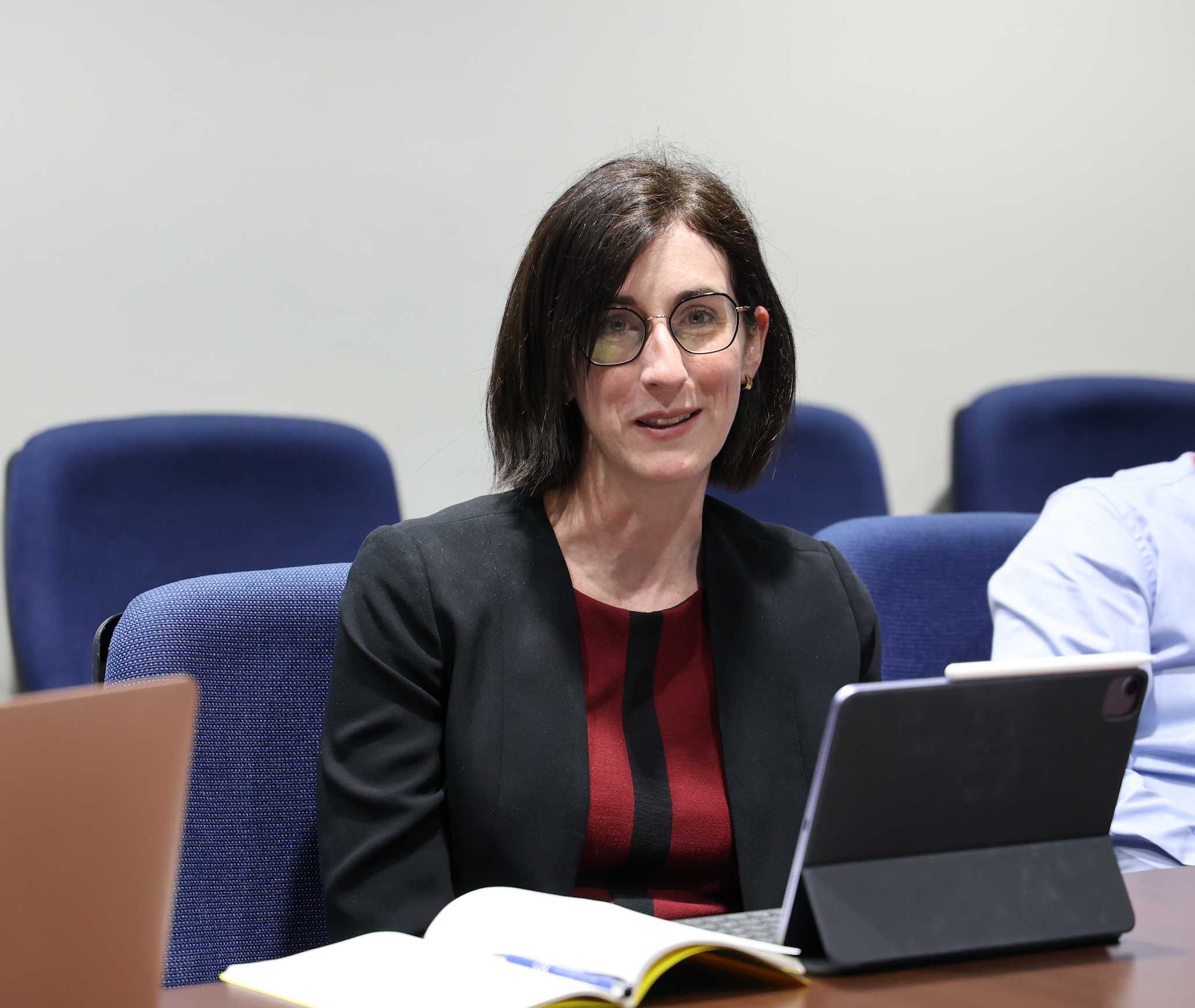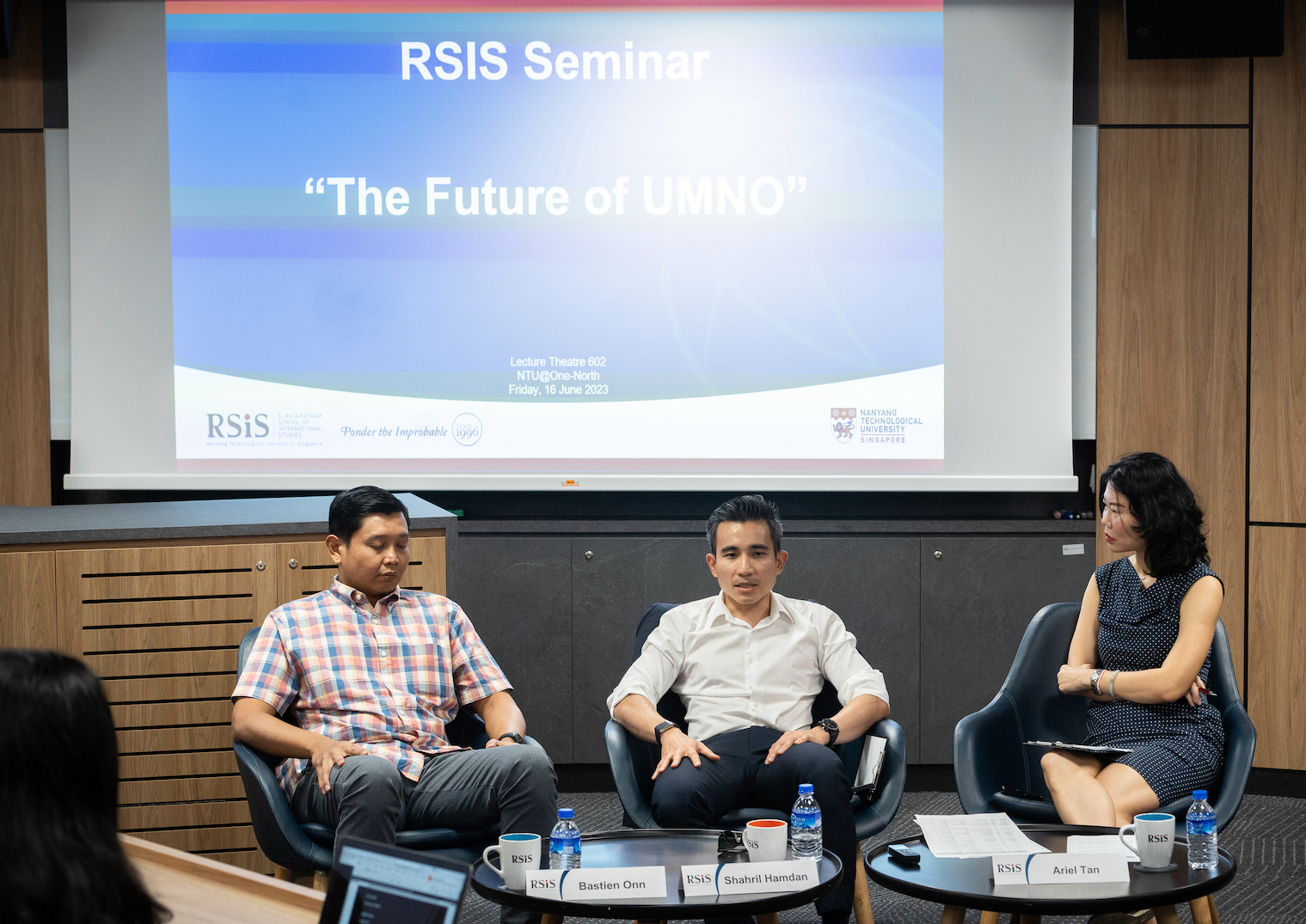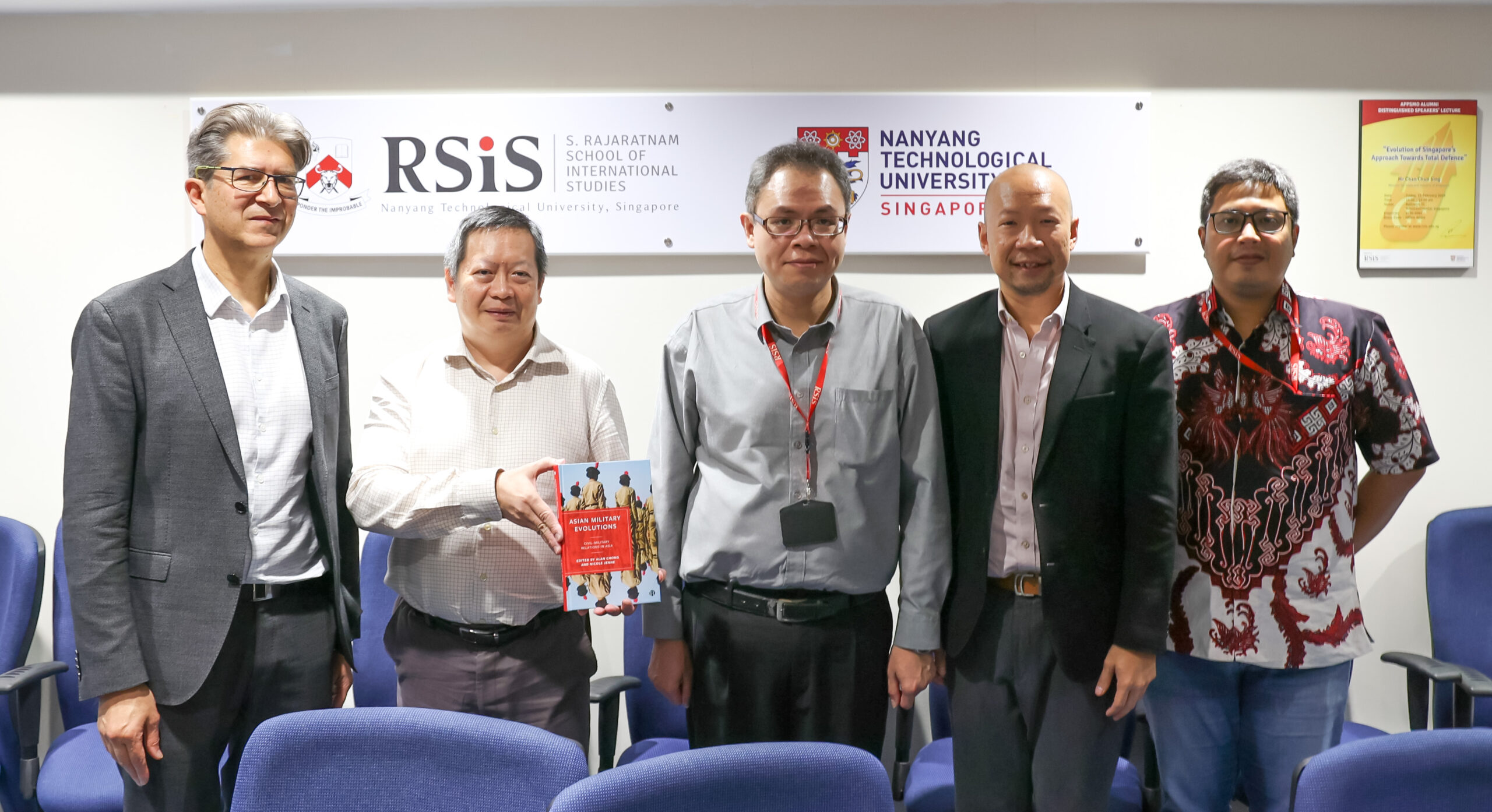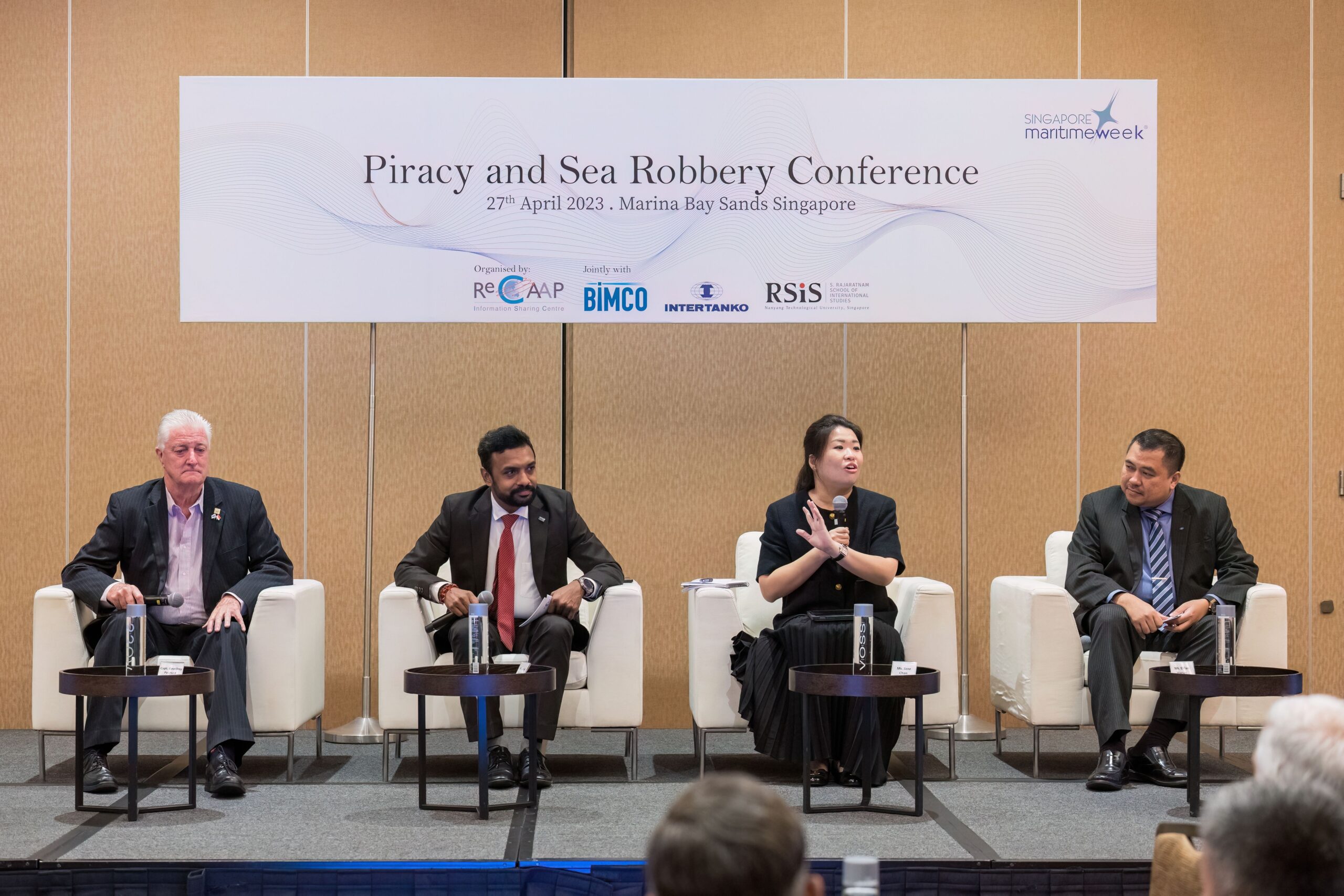
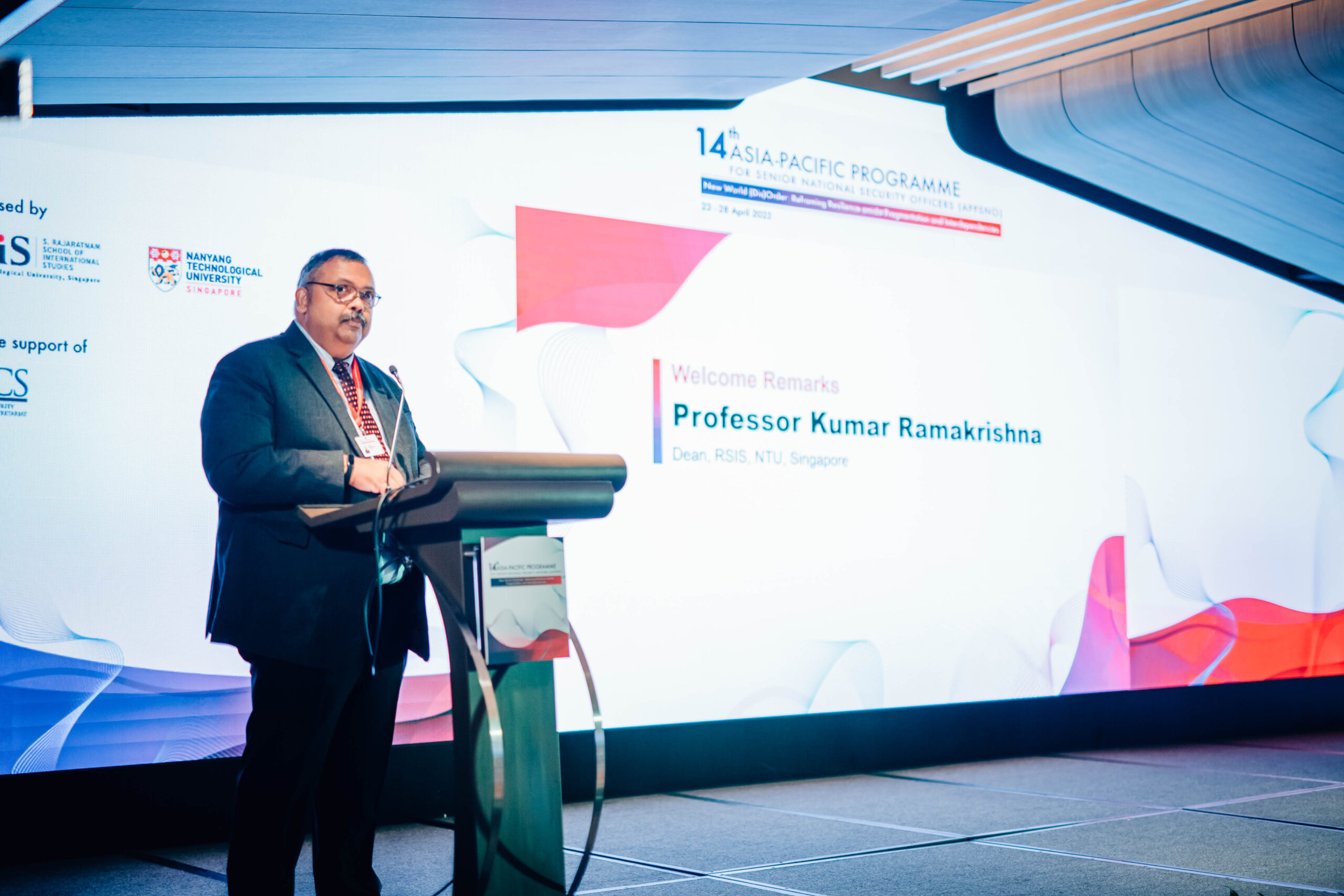
The 14th Asia-Pacific Programme for Senior National Security Officers (APPSNO) focused on the theme of “New World (Dis)Order: Reframing Resilience amidst Fragmentation and Interdependencies”. Held from 24 to 28 April 2023, it was organised by the Centre of Excellence for National Security (CENS).
The 14th edition of APPSNO contended with contemporary realities, where pandemic disruptions have brought existential interdependencies to the fore. Exacerbated Big Power contestation, threats posed by emerging technologies, the intensification of societal polarisation, and the persistent challenges posed by non-traditional security issues continue to plague recovery and greater cooperation. Against this landscape of fragmentations and their effects on national security issues, the concept of resilience was explored as a potential bulwark against dynamic and evolving threats.
International and domestic speakers were invited to shed light on the theme with their insights and experiences. And this year, 70 national security practitioners, experts, and scholars from 24 countries gathered to explore and foster dialogue. Participants from the Asia Pacific, Middle East, North and South America, and Europe, were joined by their Singaporean counterparts from various ministries and agencies.
In keeping with the programme’s theme, Ms Sim Ann, Senior Minister of State in the Ministry of Foreign Affairs and the Ministry of National Development, opened the programme by highlighting the importance of resilience (both against internal and external shocks) and future-proofing multilateralism in a complex, troubled, and dangerous post-pandemic world.
This was also emphasised by Professor Kumar Ramakrishna, Dean of RSIS, in his opening address, as he spoke about the role of resilience in combating contemporary national security challenges amidst intra-and inter-national interdependencies. This begs the question of how resilience should be thought of today especially in the context of our increasingly networked societies, and whom we should be working with to build resilience.
Among a line-up of prominent speakers, the programme featured a Distinguished Dinner Lecture by Mr Bilahari Kausikan, Chairman of the Middle East Institute at the National University of Singapore who spoke on “Great Power Competition in the 21st Century”. Mr Kausikan lent his perspicacity to geopolitical realities, situating issues such as the Ukraine Crisis and US-China relations within the context of a tumultuous world history and structural competition. On the final day of the event, Professor Tanel Kerikmäe of Tallin University of Technology, Estonia, delivered a keynote lecture on the topic of “Defragmenting and Reconnecting: A New Approach for Collaborating on Security Resiliency”. Professor Kerikmäe discussed the political significance of the worsening cybersecurity threat environment and the need to enable interoperability among states, practice interdisciplinarity in research, seek common standards, share best practices, and empower cooperation.
In addition to engaging with discussions spearheaded by the speakers, participants also gave presentations on national case studies in multi-agency homeland security management, providing perspectives on the national security policies and challenges faced in their individual contexts.
Formal exchanges and discussions were buttressed by informal networking opportunities. Local and international participants were taken on a Heritage Tour of Singapore, showcasing Singapore’s history and journey to becoming a modern city-state. On the penultimate day, participants joined a Sustainability Tour, in which, they learned about Singapore’s resource challenge and the ways in which the island-state has dealt with it since independence.
The programme concluded with the Certificate Presentation Ceremony and Closing Dinner hosted by Professor Kumar Ramakrishna. There was consensus among the participants that APPSNO provided a conducive platform for networking with national security counterparts and enabled thought-provoking conversations which set the tone for more exchanges to come.




